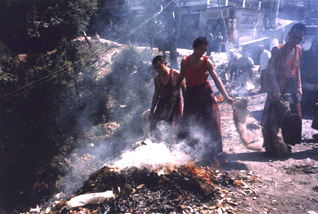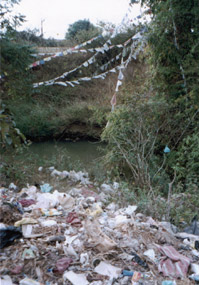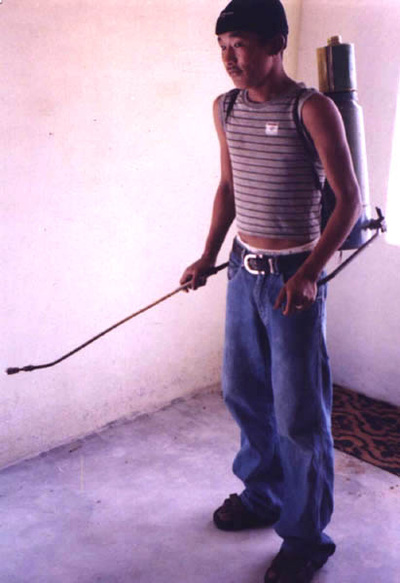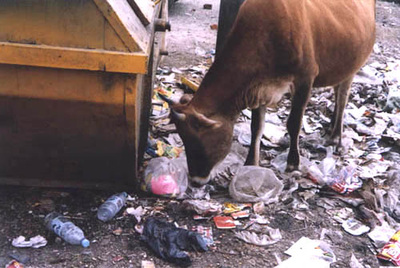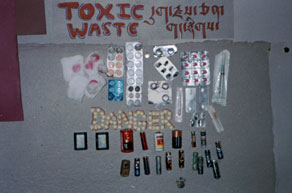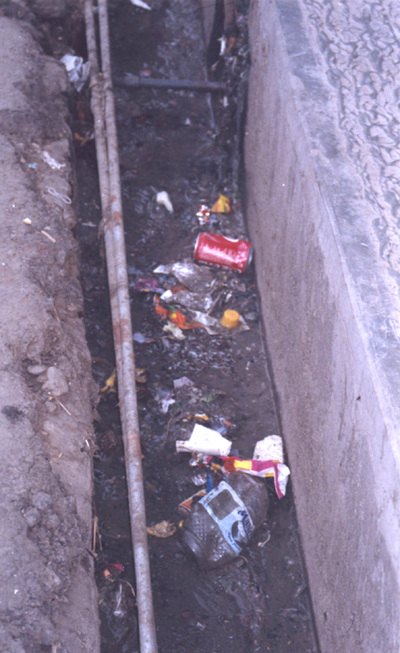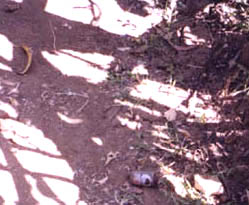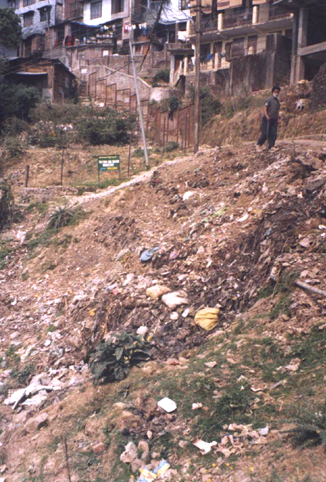Environmental Health Care
Education, Training & Action Programs
Environmental Health Hazards in TIBETAN SETTLEMENTS IN EXILE
In Tibetan settlements in India, exiled we began to see that Tibetans were generally unaware of modern toxic products that are poisonous or toxic. We saw that Tibetans were at risk of exposure to 'Persistent Organic Pollutants' (POPs) such as DDT & other banned pesticides; Dioxin from dumping and routine incineration of waste in riverbeds and near drinking water supplies; and 'Heavy Metals' from batteries & lead petroleum products. Toxic products are sold with little or no warning in India. Plastic, batteries and other non-biodegradable waste is commonly found clogging open sewage drains & strewn in open areas, providing a breeding ground for bacteria & disease.
To work to address these serious health hazards, from 1995 until 2007, we provided critical environmental health education for over 20,000 Tibetans, Indian residents & international visitors in Dharamshala & for 6,000 monks, nuns and 1,000's of other residents in the Tibetan settlement of Mundgod, South India. This has empowered individuals to make wise and practical choices for a healthier and cleaner environment for their communities and future generations.
Click here for a summary of the goals, objectives & outcomes of our
Toxic Exposure Prevention Project.
